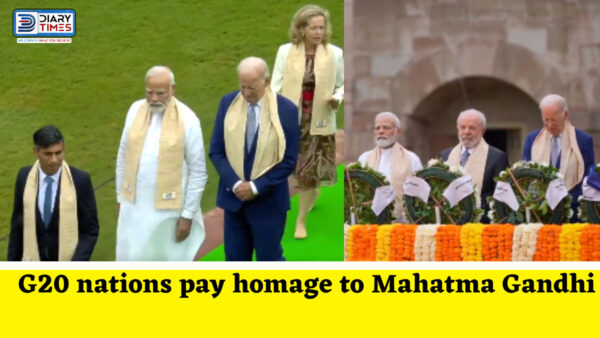G20 India Daily Updates
G20 Working Towards Gender Equality
India’s G20 presidency comes at a critical time to build back better from crises. The impacts of crises are often gendered, affecting women and girls disproportionately. The presidency brings a focus on the role of women and gender equality.
PM Narendra Modi highlighted the need to address critical issues faced by women. India can showcase its efforts in promoting gender equality and mobilize international support. The country can also play a leadership role in promoting climate action with a gender lens.
GOVERNMENT
On the domestic front, the Government of India has decided to place women’s empowerment at the heart of its Atmanirbhar Bharat development agenda, with a commitment to supporting their holistic development at all stages of life.
- The Beti Bachao Beti Padhao scheme has led to a 16-point improvement in the sex ratio at birth since 2014.
- The MUDRA scheme that provides microfinance has over 70 women beneficiaries.
- Mission Poshan 2.
Increasingly, the government is also recognising the centrality of nari shakti to effect meaningful society-wide transformation. Simply put, there is a greater focus on the role of women as drivers of growth and agents of change, and not simply as beneficiaries of development.
G20 PRESIDENCY
With India steering the efforts of the G20 in 2023, the time has come for us to build on the momentum generated so far, and further this agenda of women-led development. Given that gender is a cross-cutting theme affecting almost all the other development prospects we hope to see a renewed emphasis on gender equality across the G20 agenda, and its engagement groups.
STEPS BEING TAKEN
We look forward to advancing concrete actions on the following.
- First, supporting women’s digital and financial inclusion. Globally, almost half 42 of women and girls remain outside the formal financial system.
- Second, strengthening women’s capacities to make them equal stakeholders in development.
- This is important to facilitate the entry of and ensure continuity in women’s participation in the economy and society.
- For instance, despite education being wholly acknowledged as the cornerstone of empowerment, globally, only 49 have achieved gender parity in primary education, 42 in lower secondary education, and 24 in upper secondary education.
- 1 billion women and girls remain outside the formal financial system, many have limited access to digital technologies.
CONCLUSION
Finally, it is important to ensure the sustainability of the outcomes realised across various initiatives. For this, prioritising gender-disaggregated data systems will be critical, as investing in the collection and sharing of gender-disaggregated data will be important for developing targeted interventions, and monitoring progress towards gender equality.



